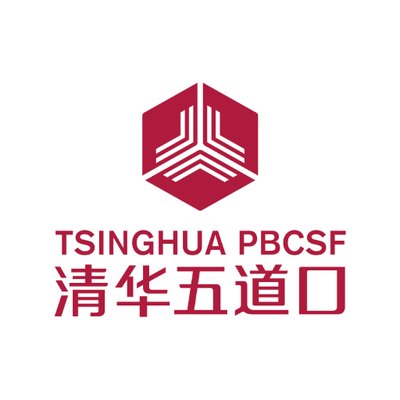Diversity, Equity, and Inclusion (DEI) programs aren’t working for a surprising reason.
In collaboration with EPC Learning Labs, GBSN is pleased to offer a FOSTERing Belonging™ a customizable program to member institutions. This custom program is designed to help business school administrators be better leaders and educators.


Research, out of the Wharton School of Business (1), shows that despite the almost $8 billion invested in DEI programs each year, this training falls short of changing behaviors and has a negligible positive effect on organizations.
A newly published study offers a clue about what is missing: belonging.
Belonging is different from—and perhaps more important than—inclusion. When employees feel they don’t belong, they experience inauthenticity, sadness, and anger. Research suggests efforts to improve organizational DEI will inevitably fail if employees don’t come to the table, or leave from it, with a sense of belonging. Other research supports this conclusion, too, reporting that when organizations do foster a culture of belonging, every aspect of organization performance skyrockets (see graphic).
What’s more, those employees who harbored a genuine sense of belonging reaped even greater individual accomplishments: doubling the rate of raises and breaking through promotion ceilings far more easily. Belonging is not only the nucleus of true organizational diversity, equity, and inclusion; it is also a cornerstone of individual and organizational success and advancement for everyone.
Fostering belonging matters in the classroom as well as the conference room.


Belonging is completely different.
The desire to belong stems from our innate human need for self-esteem and acceptance as part of a supportive group. Even with the most inclusive set of organizational policies in place, employees may not feel like they truly belong. As a result, performance flounders, employees suffer negative health consequences, and turnover soars, especially among underrepresented groups.
Workplace belonging originates in the way people are treated—day in and day out—especially in meetings, where employees typically spend more than half their time. But few leaders and colleagues understand how to generate consistent feelings of belonging during these meetings. All too often, people unwittingly trigger the exact opposite sentiment—alienation and loneliness—especially for those from underrepresented groups. When team cohesion fragments, organizational performance suffers. This is where EPC Learning Labs comes in.
How can you create feelings of belonging…across your institution?
FOSTERing Belonging™ is a unique program that helps participants, especially leaders, spark feelings of belonging for everyone. The content comprises two parts and is delivered in an unparalleled learning process (see below).
The first draws on brain science to introduce a framework describing three modes of thinking. This framework provides surprising insights about when and how individuals experience “threat” responses. These responses trigger sets of biases, decisions, and behaviors that lead to alienation and loneliness.
Building on these modes of thinking, the second part of the program introduces FOSTER, a set of five strategic principles that, if followed, can generate genuine feelings of belonging and inclusion in meetings. These principles gain traction with specific processes and facilitation techniques and methods designed to transform every meeting into a high-performance, culture-building opportunity. Mastery of this content ensures that all meeting participants feel welcomed, respected, supported, and valued.
LEARN
2-Hour Virtual Training Sessions
PRACTICE
Fortnightly EPC sessions to develop microlearning communities
MASTER
Final meeting to assess mastery and celebrate meaningful change
Gather Colleagues and Bring a FOSTERing Belonging™ program to your Institution.
EPC Learning Labs’ program approach delivers a key ingredient missing in most DEI initiatives. It also transforms individual and team performance while helping to create the organizational culture that most leaders, managers, and employees are desperate to establish.
Learn more: www.epclearninglabs.org
Customized for your institution
This program is designed to be customized and delivered to one institution at a time.
It is not an open enrollment program.
Cohorts
For optimal results, program cohorts must be between 15 and 30 participants.
Virtual Format
All programs are delivered in a virtual format and specially structured and delivered to avoid “Zoom” fatigue.
Meet the Expert

Jackson Nickerson
Executive Vice President and Chief Social Scientist, EPC Learning Labs
Jackson Nickerson has a long and distinguished career teaching, researching, consulting, administering, and entrepreneuring (see Wikipedia here). Starting out as an assistant professor in 1996, he became the Frahm Family Professor of Organization and Strategy at Olin Business School, Washington University. Jackson was a co-creator of Critical Thinking@Olin, which won the inaugural MBA Innovator’s Award from the MBA Roundtable. With AACSB he created Leading in the Academic Enterprise, a series of leadership development seminars for administrators from assistant deans to provosts.
As the Associate Dean and Director of Brookings Executive Education from 2009 to 2017, he led many innovations including one of the first Executive Master of Science in Leadership degrees in the nation, doubled executive enrollment, and increased revenue by 75%. He was the first ever senior fellow at the Grameen Foundation. He is a Visiting Professor of Corporate Governance at Insper in Sao Paulo and a frequent collaborator with Center for Homeland Defense and Security at the Naval Post Graduate School. His research spans organization and strategy topics best described as strategic leadership. A consultant for scores of companies and government agencies, he advises on strategy development, inclusion and diversity, and processes to ensure that leaders solve the right problem the first time. Jackson is the chief social scientist for EPC Learning Labs LLC.
Jackson holds a Ph.D. in Business and Public Policy, an M.B.A., and an M.S. in Mechanical Engineering, all from University of California, Berkeley, and a B.S. in Mechanical Engineering from Worcester Polytechnic Institute. Before entering academia, he was a control systems engineer with NASA’s Jet Propulsion Laboratory.
Interested in bringing the FOSTERing Belonging™ Program to Your Institution?
Connect with us to learn more about how you can help your institution master FOSTERing Belonging™.







